- Home
- Darrell Maloney
An Acquired Taste Page 10
An Acquired Taste Read online
Page 10
Amanda turned to the dog and addressed him directly.
“Is that what happened, boy? Were you Tillie’s hero?”
The German shepherd raised his head and wagged his tail. Tillie couldn’t swear to it, but he seemed to smile.
“There you go,” Amanda added to Tillie. “Looks like your new dog has a name. Hero.”
“But… I’ve never had a dog. I wouldn’t know how to treat him.”
“Do you carry a can opener?”
Tillie was a bit confused. She didn’t understand the question, but answered it anyway.
“Yes…”
“That’s all you need. The trailers all have canned dog food on them, because the scavengers haven’t gotten desperate enough to start eating it yet. Just give him two or three cans a day and share your water with him.
Tillie wasn’t so sure. She’d never had any pets other than cats. And cats, once you got over their bad attitudes and lazy ways, were ridiculously easy to take care of.
And there was that whole being terrified of dogs thing.
She looked at the shepherd, wagging his tail and chomping at the bits to come over and see her.
Or possibly eat her.
She had to admit, he looked harmless.
And he acted harmless.
And she certainly owed him… something, for protecting her from harm.
-27-
“Do you mind me asking,” Amanda said, “Why you’re afraid of dogs?”
“It’s a lifelong phobia. I was attacked when I was very small…”
Normally she’d have left it at that, but Amanda seemed to be waiting for more.
“I was taken from my stroller by a dog very much like this one. I was so young I don’t even remember it. But I heard the story a thousand times as my mom and grandmother told it to people to explain all the scars I had.
“He took me and shook me like a rag doll and would have likely killed me, until a brave postman went up to him and kicked him hard in the ribs.
“The dog dropped me and turned on the postman instead, and mauled him pretty severely as well. He surely saved my life that day.
“Suddenly, they said the dog stopped as though he realized what he’d done and regretted it.
“He lay down and looked very sad, as though realizing he’d just earned a death sentence and accepting it. They said when the dog catcher came he went willingly without a fuss. My mother always talked about his eyes. How sad they were. They could tell he was sorry but had no way to make amends.
“She said they were the saddest eyes she’d ever seen on man or beast.”
Amanda was perplexed.
“And they never determined what it was that set him off?”
“At first they thought it was rabies, but he showed none of the other signs. And they said he became passive too quickly and stayed that way. That wasn’t typical of rabid dogs.
“When he was put down they tested him for rabies but no one expected them to come back confirmed. By that time they’d pretty much ruled out rabies so nobody was surprised when the test was negative.
“My parents talked to a lot of experts and they concluded he got aggressive because of a trigger. Probably a squeaky wheel on my stroller. He was a rescue, you see, and apparently his first owner beat him ferociously. They told my mom that apparently he saw or heard something which he associated with his early days, and he felt the need to lash out to protect himself from being abused again.”
“You know, Tillie, not all dogs are dangerous just because one attacks.”
“I know that. But phobias don’t have to be reasonable or rational. If they were, they wouldn’t be phobias. The very nature of a phobia is it doesn’t make sense to rational people. But to the person who has one, it’s terrifying.”
“Would you like for us to take Hero with us?”
“No.”
Her one word answer, and the resolve in which it was delivered, surprised even her.
“He saved my life. He stayed with me and protected me and tried to nurse me back to health. I owe him something.”
Amanda went to the dog and petted him, then scratched him behind the ears.
“Have you ever been able to pet a dog before?”
“My parents used to take me to a pet store as part of my therapy. I would pet the newborn puppies, away from their mothers. They were trying to prove to me that all dogs weren’t hostile.”
“And did that therapy work?”
“To some degree. I was able to pet them when they were little. But when they were just a few weeks old and started to growl they started to terrify me. Even when I knew they were just growling in fun.”
“Do you think you can pet Hero?”
“I don’t know. I’ll try.”
The dog had an old faded collar on. He was at one time a beloved family pet.
“I’ll pull him back immediately if you’re uncomfortable,” Amanda said.
She wrapped her fingers around the dog’s collar and coaxed him from his resting place, then slowly approached Tillie.
Amanda could see the woman’s apprehension grow with each step, and saw Tillie visibly wince when she reached out to touch the dog.
Then the oddest thing happened.
Hero, who seemed to sense this was her first time, turned and licked her hand. Then he plopped down beside her, placing his big head in her lap.
“He wants to be your friend,” Amanda said. “He wants to protect you. You’ve become his human.”
“What do you mean? I don’t understand.”
“Some experts think dogs have their own way of seeing things. They see humans as their pets, or more specifically, as a weaker species which needs to be looked after and protected.
“Maybe pets is the wrong word. They see humans as needing their help to survive, since we’re not equipped with essential tools such as claws and sharp teeth and the ability to track and hunt.
“Some dogs will adopt a human, for lack of a better term. They’ll attach themselves to a human they see as needing of protection, and will give up their lives if need be to protect them.
“I think Hero sees you in that way. He senses you need someone to help you on your journey. And he’s willing to step up and do that for you.
“In essence, it doesn’t matter much whether you want to adopt him or not.
“He’s apparently adopted you.”
Tillie mimicked what she’d seen Amanda do and scratched the dog behind his ears.
He turned his head and licked her hand again.
“He likes it,” Amanda said to her. “You’re bonding.”
“What do I do to get him to go? I mean, I know how to steer a horse. How do you steer a dog?”
Amanda laughed.
“You don’t. When you get up to leave he’ll follow. He won’t let you get too far ahead before he runs to catch up. And if he happens to lose sight of you, he’ll find you again. He’s got a sense of smell that’ll make it impossible for you to hide from him.”
Spencer interjected, “Do you have any idea why you passed out? Were you exhausted? Dehydrated?”
Tillie just looked at him, unsure why he was asking.
So he elaborated, “I just want to make sure you’re not going to fall out again as soon as we leave.”
“I haven’t taken my blood pressure medication in quite some time. I ran out about a week or so ago. When I push myself too hard I tend to faint.”
“Gee,” he said. “That’s a hard one. I don’t know how we can prevent that from happening again.”
“I was trying to make it to that brown truck over there. I think it may have some of my medication in it.”
“If it’s in there, where would it be?”
“If it’s there it’ll be on a shelf marked Signature Service: Controlled Items. It’ll probably be at the front of the truck.”
Mason looked to Amanda and asked, “We’re not in that big a hurry to get to Birmingham, are we?”
“Not so much that we c
an’t take a break to help a friend.”
He turned back to Tillie and asked, “What’s the name of your medication?”
“Benzabrel. The dosage doesn’t matter. I can adjust it by doubling up on the tablets or by breaking them in half.”
“Okay. You keep bonding with Hero and I’ll be back soon.”
True to his word, he was back in less than half an hour. In his hand was a bottle containing five hundred tablets of the lifesaving medication.
Tillie, who’d been through so much her defenses were weakened, burst into tears at the sight of the bottle and hugged her new friend tightly.
Then she drew back and immediately apologized.
“No problem,” he said while blushing. “The day I turn down a hug is the day I stop being human.”
Half an hour later the group determined Tillie capable of surviving on her own and prepared to part ways.
But first Tillie had a couple more questions of Amanda.
“Why is it that some dogs are mean and some aren’t?”
“Some dogs are born with psychological problems, just like some people are. Chemical imbalances in the brain and other things we just can’t explain. But that’s relatively rare, considering all the dogs that are born.
“What’s vastly more common is poor parenting on the part of their owners.
“I know you’ve heard the old phrase that dogs aren’t dangerous if you raise them right.
“It’s true. Most dogs turn mean either because they’re horribly abused or terribly neglected.
“Say, for example, a dog is kicked and beaten every day of his life. He’ll learn that humans are brutal and consider them the enemy. He’ll learn to fight back to protect himself. And he’ll learn to strike first whenever possible, even against humans who never abused him. Because he’ll dump all of us into the same category. He’ll think we’ll all abuse him because he doesn’t know any better.
“Dogs who are neglected can be dangerous as well. Say a puppy is separated from his mother as soon as he’s weaned. He’s placed into a cage or tied to a stake in a yard, and that becomes his whole life. He’s never given the chance to interact with others, either dogs or humans.
“His emotional development will be hampered. Puppies need the interaction of others to develop their social skills, just like we do. Without that opportunity they won’t develop. They won’t know how to behave around others. And if they ever get out of their cages or off their stakes they won’t know how to act. Most of them lash out, either out of pent-up anger or because they feel the need to defend themselves.
“A dog that is raised properly, like a child who is raised properly, will turn out okay.
“When they don’t it’s almost always the fault of humans.”
“How is it you know so much about dogs?”
Amanda smiled. “It’s my chosen profession.”
She went off to get another bottle of water and Mason took the opportunity to whisper to Tillie.
“She’s too modest to elaborate. She never told you her last name. She is Amanda Price, and she used to be head of the Veterinary Department at the University of Alabama.
“She’s considered one of the world’s most renowned experts on animal behavior.”
-28-
It took a full twenty minutes for the strange little man to haul his water up the side of the luxury Riverwalk hotel.
As John Castro was tying the man’s rope to the last of the containers a woman walked up behind him.
“Thank you for helping him out,” she said.
John was a bit startled, not aware anyone else was in the area.
“Oh,” he said. “No problem. I’m glad to help. Do you know who he is?”
“His name is Julio Castillo. Word is he worked at the hotel when the power went out. Everybody calls him Loco Julio. Not crazy in a dangerous way. There’s not a mean bone in his body. But crazy because, well… I’m sure you’ve talked to him enough to know he’s a little bit out there.
“But I guess we’re all a little bit crazy these days, huh? I ate a pigeon yesterday. Watched him drop dead from the sky, and figured what the hell. He was fresh meat. Might as well pluck his feathers and eat him.”
“You weren’t afraid he was diseased?”
“The thought crossed my mind. But I was more hungry than fearful, I guess. I cooked him and ate him and you know what? He tasted pretty darned good.
“My point is, we’ve all gone a little bit nuts since the blackout. Done things we never thought ourselves capable of doing a couple of years ago. I guess it’s better to be crazy than dead, and if that’s the only two options this one ain’t so bad.”
“I suppose not. So what else do you know about Loco Julio?”
“Not much. I live in a room at the old La Mansion Hotel. I’ve talked to him a lot of times when I happened by as he was filling up his buckets. Helped him tie his rope to them a few times. He’s not much of a conversationalist, except for the insults and sarcasm. But I get the sense he’s a good guy.
“Crusty as hell, but a good guy on the inside.”
“Thanks for the info. I think I’ll go up and get to know him a little better.”
“Can I ask you something first?”
“Sure.”
“Well, first of all, are you a cop?”
John was a bit taken aback. He wasn’t wearing his uniform, or even his badge. And he was afoot, his mount Cisco back in the SAPD’s vehicle storage lot a few blocks away.
“As a matter of fact, I am. But how did you know?”
“Mostly your haircut. Seems every other man in town has either let his hair grow into a ragged mess, or has somebody cut it close to the skull. Yours is neither. Yours grows in a nice style, and doesn’t quite touch the ears. Almost like a military haircut. Whoever cuts it does a very good job.”
“That’s Hannah, my wife. She’s come a long way as a barber the last few months. The first couple of times she cut it I didn’t want to leave the house. But these days her scissors are my friend.”
The woman laughed. It was an easy laugh, heartfelt and unashamed.
“Oh, I didn’t come here to compliment either you or your wife. But in my experience, the only men around here who take the effort to maintain their personal appearance are police officers.”
John held out his hand and introduced himself.
“I’m John Castro. SAPD. And you are?”
“Toni. Toni Tate.”
“Is Toni short for Antoinette?”
“Yes. But if you call me Antoinette I’ll have to kill you.”
“Toni it is. Is there a particular reason you were looking for a cop today?”
“As a matter of fact, John, there is. I was hoping you could help me.”
“I’ll try.”
“Like I said, I live on the second floor of the old La Mansion Hotel. Room 201. My next door neighbor is a wonderful woman named Rose McGlory.
“Rose and I watch out for other. We’re both single women, you see, both middle aged. Both with health problems, hers a bit worse than mine.
“Until three days ago we went everywhere together. Down to the river for water, for our daily walks to the Alamo food distribution center. Here and there to check on other friends. We were always together. Folks said we were tied at the hip.”
“So what happened to change that?”
“Three days ago I went and knocked on her door to pick her up. We were going to the center to pick up a little bit of food. I heard voices in her room, which was very unusual. Then the door opened and a man greeted me.
“He said he was Rose’s son. And that he would take care of her now. That there was no need for me to come around anymore. That I should just leave Rose alone.”
John thought for a moment, then chose his words carefully.
“That’s pretty rude of him, granted. But if he’s her son and is willing to provide for her, that’s not necessarily a bad thing. What did Rose have to say about it?”
“Tha
t’s just it. I never saw Rose. She never came to the door. And she hasn’t been out of the room since then. I’ve been watching and so have the other neighbors. We’ve seen him come and go several times, but never her. When he’s gone we knock on the door and she doesn’t answer.
“We’re all afraid something dreadful has happened to her.”
“I’ll go by and check, but surely her own son wouldn’t have done her any harm. Maybe she’s just sick and can’t make it to the door.”
“That’s just it, John. He isn’t her son.”
“How can you be sure?”
“I’ve known Rose a long time, John. We’ve talked about everything under the sun. I know more about her than perhaps anyone else on earth.
“I know she never married. She’s what they used to call a spinster. She dated in her younger years, but just had no desire to take a husband. And she had no kids.”
John played devil’s advocate to hide his own concern.
“It wouldn’t be the first time someone had a secret they didn’t want to share. We all have secrets after all.”
“That’s not all, John. Rose is lily white, with bright red hair. The man who claims to be her son is black.”
John had wanted to climb nine flights of stairs to meet Loco Julio. To find out his story and to see whether he needed John’s assistance.
But Loco Julio would have to wait.
There was something more pressing to deal with.
-29-
The La Mansion was one of the San Antonio Riverwalk’s premier hotels prior to the blackout. It was of old world Spanish design, quaint and cozy and opening its doors directly onto the banks of the world-famous San Antonio River.
The new world changed everything. Although the La Mansion was still a fine hotel, it no longer catered to guests from around the world.
Now it housed squatters who’d taken up residence there because of its close proximity to the river and to food banks the city had set up to pass out daily rations.
John Castro walked up to Room 203 and knocked loudly on the door.

 A Perilous Journey
A Perilous Journey The Yellowstone Event: Book 6: The Aftermath
The Yellowstone Event: Book 6: The Aftermath Eden Bound
Eden Bound Without Warning
Without Warning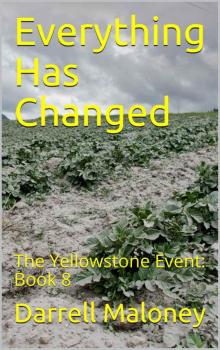 Everything Has Changed
Everything Has Changed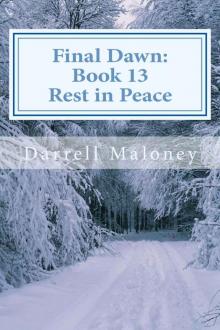 Rest in Peace
Rest in Peace This Changes Everything
This Changes Everything The Final Chapter
The Final Chapter It Can't Be Her
It Can't Be Her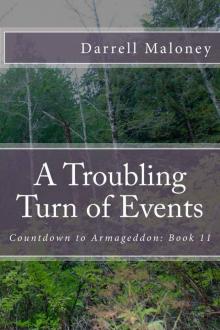 A Troubling Turn of Events
A Troubling Turn of Events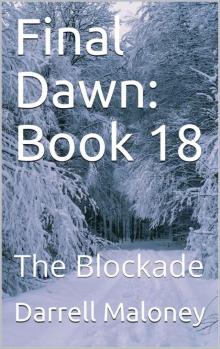 The Blockade
The Blockade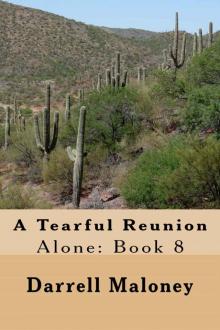 A Tearful Reunion
A Tearful Reunion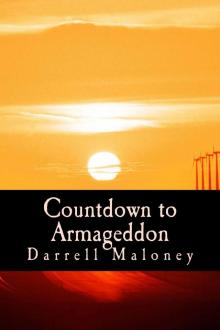 Countdown to Armageddon
Countdown to Armageddon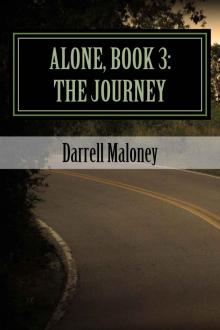 Alone, Book 3: The Journey
Alone, Book 3: The Journey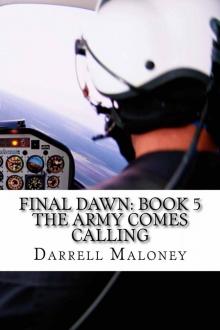 The Army Comes Calling
The Army Comes Calling The Grim Reaper Comes Calling
The Grim Reaper Comes Calling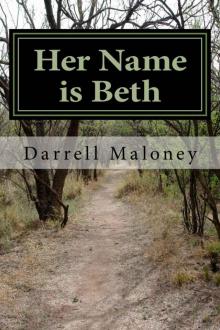 Her Name is Beth: Alone: Book 5
Her Name is Beth: Alone: Book 5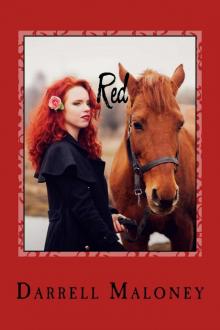 Red: The Adventure Begins
Red: The Adventure Begins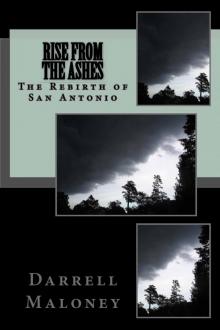 Rise From The Ashes: The Rebirth of San Antonio (Countdown to Armageddon Book 3)
Rise From The Ashes: The Rebirth of San Antonio (Countdown to Armageddon Book 3)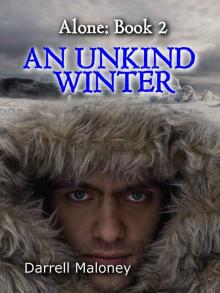 An Unkind Winter (Alone Book 2)
An Unkind Winter (Alone Book 2)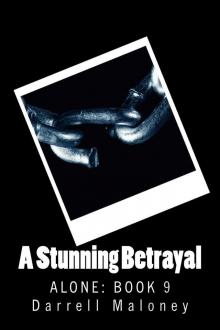 A Stunning Betrayal: Alone: Book 9
A Stunning Betrayal: Alone: Book 9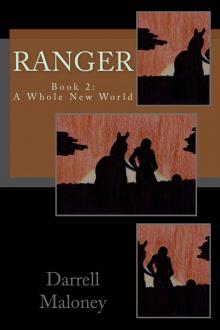 A Whole New World: Ranger: Book 2
A Whole New World: Ranger: Book 2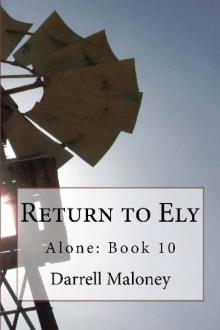 Return To Ely
Return To Ely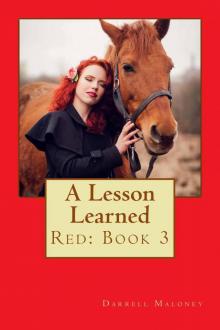 A Lesson Learned: Red: Book 3
A Lesson Learned: Red: Book 3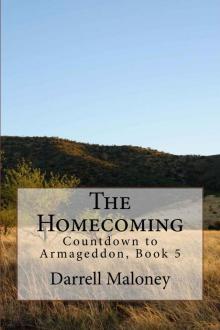 The Homecoming: Countdown to Armageddon: Book 5
The Homecoming: Countdown to Armageddon: Book 5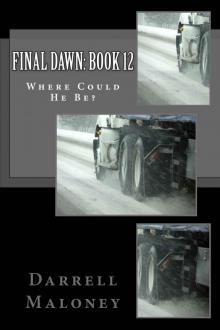 Final Dawn: Book 12: Where Could He Be?
Final Dawn: Book 12: Where Could He Be?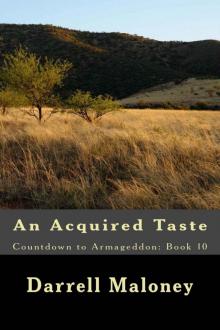 An Acquired Taste
An Acquired Taste On Desert Sands: Alone: Book 6
On Desert Sands: Alone: Book 6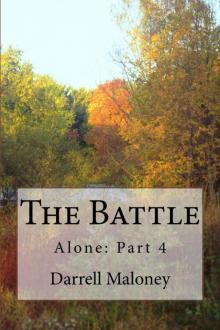 The Battle: Alone: Book 4
The Battle: Alone: Book 4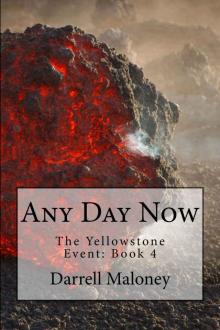 Any Day Now
Any Day Now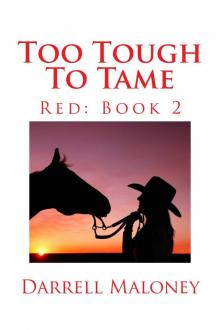 Too Tough To Tame: Red: Book 2
Too Tough To Tame: Red: Book 2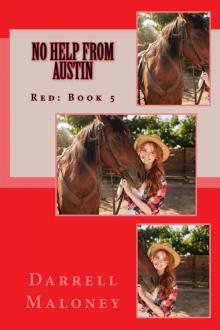 No Help From Austin: Red: Book 5
No Help From Austin: Red: Book 5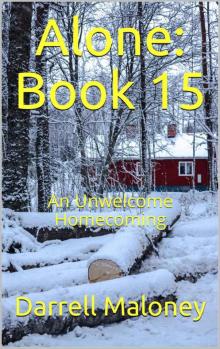 An Unwelcome Homecoming
An Unwelcome Homecoming A New Start: Final Dawn: Book 9 (Volume 9)
A New Start: Final Dawn: Book 9 (Volume 9)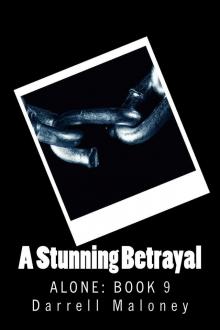 A Stunning Betrayal
A Stunning Betrayal An Undeclared War (Countdown to Armageddon Book 4)
An Undeclared War (Countdown to Armageddon Book 4) One of Our Own: Final Dawn: Book 11
One of Our Own: Final Dawn: Book 11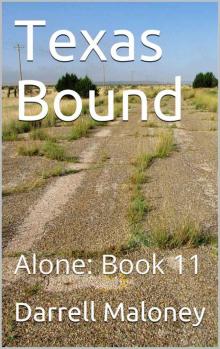 Texas Bound: Alone: Book 11
Texas Bound: Alone: Book 11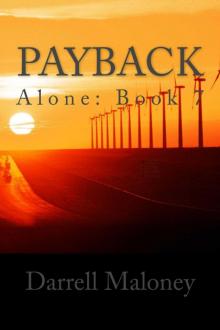 Payback: Alone: Book 7
Payback: Alone: Book 7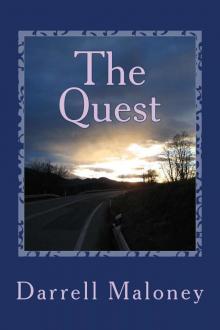 The Quest: Countdown to Armageddon: Book 6
The Quest: Countdown to Armageddon: Book 6 The Siege
The Siege The Yellowstone Event: Book 1: Fire in the Sky
The Yellowstone Event: Book 1: Fire in the Sky Return to Blanco (Red Book 4)
Return to Blanco (Red Book 4) The Search
The Search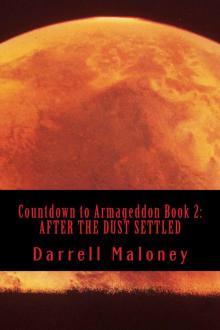 AFTER THE DUST SETTLED (Countdown to Armageddon Book 2)
AFTER THE DUST SETTLED (Countdown to Armageddon Book 2)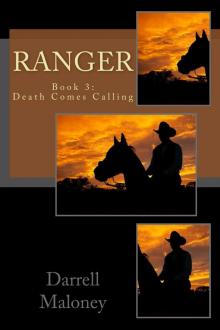 Death Comes Calling (Ranger Book 3)
Death Comes Calling (Ranger Book 3)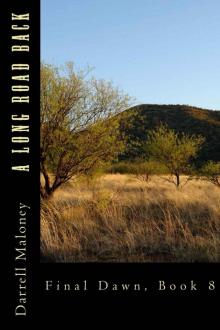 A Long Road Back: Final Dawn: Book 8
A Long Road Back: Final Dawn: Book 8